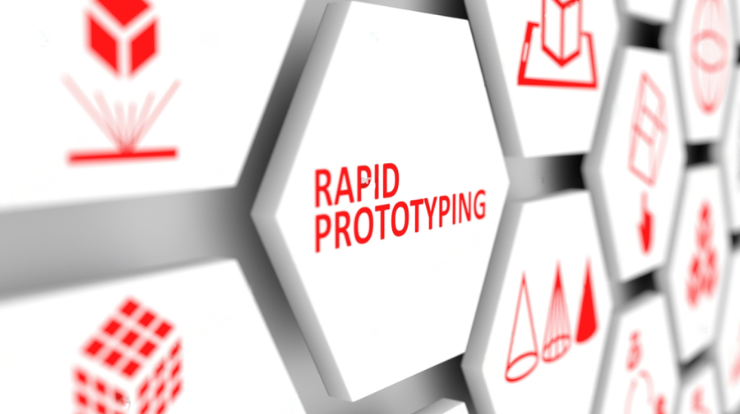Dubai’s rapid prototyping industry has emerged as a key player in the global innovation landscape, propelled by the city’s strategic initiatives, advanced infrastructure, and commitment to fostering entrepreneurship. As Dubai vies for prominence among leading innovation hubs worldwide, it’s crucial to assess the global competitiveness of its rapid prototyping industry.
In this analysis, we will compare Dubai’s rapid prototyping sector with other leading innovation hubs, examining key factors such as technology adoption, ecosystem maturity, talent pool, and market access.
Technology Adoption and Infrastructure
One of the key determinants of global competitiveness in rapid prototyping is the adoption of cutting-edge technologies and the availability of advanced infrastructure.
Leading innovation hubs such as Silicon Valley, Shenzhen, and Tokyo boast world-class research facilities, state-of-the-art manufacturing centers, and vibrant technology ecosystems that drive innovation across various industries.
Dubai has made significant strides in this regard, investing in advanced manufacturing technologies, 3D printing facilities, and research institutions to support the rapid prototyping industry. While Dubai’s infrastructure may not match the scale and sophistication of established hubs like Silicon Valley, it offers a conducive environment for rapid prototyping companies to leverage emerging technologies and collaborate on innovative projects.
Ecosystem Maturity and Collaboration
The maturity of the innovation ecosystem plays a crucial role in determining the global competitiveness of rapid prototyping industries.
Established hubs benefit from decades of investment in research, development, and collaboration between academia, industry, and government. Silicon Valley, for example, has a robust ecosystem characterized by a dense network of startups, venture capitalists, academic institutions, and corporate R&D centers that drive innovation and entrepreneurship.
Dubai’s innovation ecosystem is still evolving but has witnessed rapid growth in recent years, fueled by government initiatives, startup accelerators, and collaborative platforms such as Dubai Future Foundation and Dubai Future Accelerators.
While Dubai may lack the depth and breadth of established hubs, its entrepreneurial spirit, regulatory flexibility, and strategic location position it as a rising contender in the global innovation landscape.
Talent Pool and Human Capital
Access to a skilled talent pool is a critical factor in the competitiveness of rapid prototyping industries. Leading hubs attract top talent from around the world, offering opportunities for professional development, networking, and collaboration.
Silicon Valley, in particular, is renowned for its deep talent pool of engineers, designers, and entrepreneurs who drive technological innovation and startup success. Dubai’s rapid prototyping industry benefits from its multicultural workforce, attracting talent from diverse backgrounds and disciplines. The city’s focus on education, training, and talent development initiatives further enhances its appeal as a destination for skilled professionals seeking opportunities in the innovation sector.
While Dubai may face challenges in retaining talent due to competition from established hubs, its efforts to nurture local talent and attract international expertise contribute to its global competitiveness in rapid prototyping.
Market Access and Industry Integration
Access to markets and integration with existing industries are crucial factors that determine the global competitiveness of rapid prototyping industries. Established hubs like Shenzhen and Tokyo have well-established supply chains, distribution networks, and industry clusters that facilitate market access and collaboration across sectors.
Silicon Valley’s proximity to major technology companies and venture capital firms offers rapid prototyping startups unparalleled opportunities for market validation and investment. Dubai’s strategic location as a gateway to emerging markets in the Middle East, Africa, and South Asia presents unique advantages for rapid prototyping companies seeking to expand their reach.
The city’s focus on key sectors such as aerospace, healthcare, and construction further aligns with the demand for innovative solutions and creates opportunities for industry integration and market growth.
Regulatory Environment and Business Climate
The regulatory environment and business climate significantly impact the global competitiveness of rapid prototyping industries. Established hubs like Singapore and Hong Kong offer favorable regulatory frameworks, tax incentives, and ease of doing business that attract startups and multinational corporations alike.
Dubai has made strides in improving its regulatory environment, with initiatives such as Dubai Future Foundation and Dubai Future Accelerators aimed at fostering innovation and entrepreneurship.
The city’s free zones, tax exemptions, and investor-friendly policies create an attractive environment for rapid prototyping companies to establish and grow their businesses. While challenges such as bureaucracy and cultural differences may pose hurdles, Dubai’s proactive approach to regulatory reform and its commitment to supporting innovation position it as a competitive player in the global rapid prototyping landscape.
Conclusion
In conclusion, Dubai’s rapid prototyping industry has emerged as a competitive player in the global innovation landscape, driven by its strategic initiatives, advanced infrastructure, and entrepreneurial ecosystem.
While established hubs like Silicon Valley, Shenzhen, and Tokyo maintain a competitive edge in terms of technology adoption, ecosystem maturity, and market access, Dubai offers unique advantages such as its strategic location, multicultural workforce, and investor-friendly business climate.
By leveraging these strengths and addressing challenges such as talent retention and regulatory reform, Dubai’s rapid prototyping industry is poised to further enhance its global competitiveness and contribute to the city’s vision of becoming a leading innovation hub.

